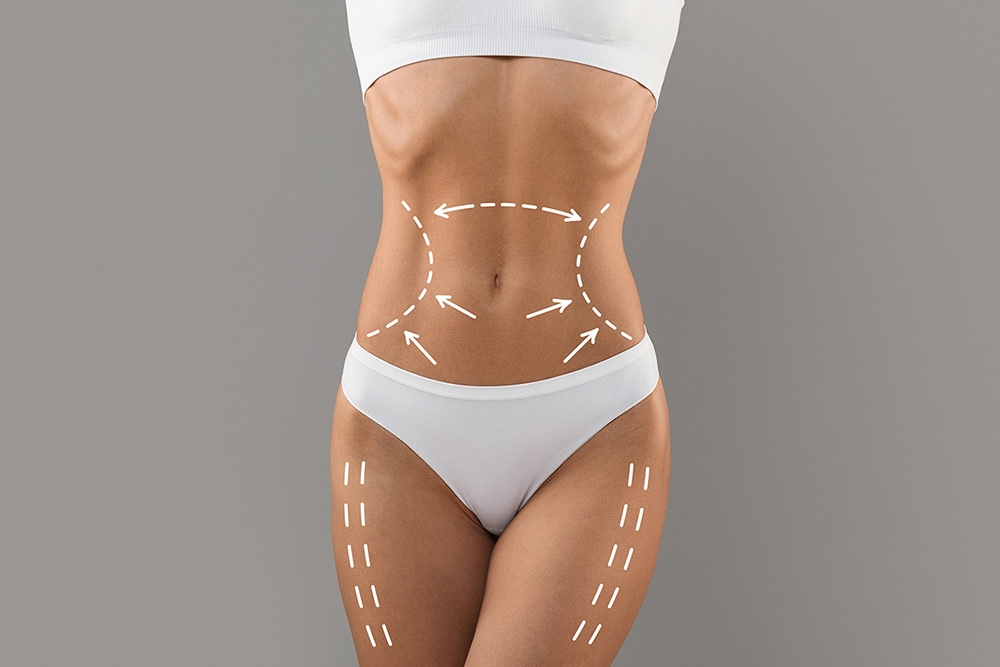Are you considering plastic surgery after weight loss to complete your transformation? This article will explore when and why plastic surgery could be the right choice for those who have recently lost a significant amount of weight.
Whether you’re looking to contour your body or you want to reshape specific areas, learn more about who should consider plastic surgery after weight loss today!

Understanding the Journey of Weight Loss and Its Impact on the Body
Weight loss, especially significant weight loss, often leaves individuals with excess skin, affecting their appearance and comfort. This is where plastic surgery after weight loss comes into play. It’s not just about cosmetic enhancement; it’s about addressing the physical and psychological impacts of dramatic weight loss. Many have loose skin, which can lead to hygiene and mobility issues, affecting everyday life. Plastic surgery after weight loss aims to remove this excess skin, improving not only the physical appearance but also the quality of life.
Why Undergo Plastic Surgery After Weight Loss?
Addressing Loose Skin and Reshaping Your Body Post-Weight Loss
When massive weight loss patients achieve their weight loss goal, they often find that their skin has not conformed to their new body shape. This is where body contouring comes in. Surgical procedures like tummy tuck, arm lift, thigh lift, and breast lift are designed to remove excessive skin and give a trimmer figure. This transformation is not just aesthetic; it significantly boosts self-esteem and comfort.
Enhancing Self-Confidence and Body Image
Plastic surgery after weight loss not only improves physical appearance but also enhances mental health. By achieving a more toned appearance, individuals often experience a renewed sense of confidence, leading to a healthier lifestyle and a positive outlook on life.
Evaluating Candidacy for Plastic Surgery After Weight Loss
Assessing Your Health and Medical History
Determining if someone is a suitable candidate for surgery after weight loss involves a thorough evaluation of their overall health and medical history. This assessment is crucial because certain medical conditions can significantly increase the risk of complications during and after the surgery. For instance, individuals with heart disease, uncontrolled diabetes, or other serious health issues may face higher risks during surgery. Additionally, a history of smoking can affect wound healing, making it a critical factor for consideration.
Psychological Readiness for Surgery
Psychological readiness is a key aspect of candidacy for plastic surgery. Candidates should have a clear understanding of what the surgery can and cannot achieve. It’s important to set realistic goals and have a positive but practical outlook on the outcome of the surgery. The emotional impact of such a transformative change should not be underestimated. Candidates should be mentally prepared for the changes in their appearance and how these changes may affect their self-image and interactions with others.
Lifestyle Factors and Weight Stability
Candidates should have maintained a stable weight for at least six months to a year before considering surgery. Weight fluctuations after surgery can negatively impact the results, potentially leading to the need for additional surgeries. A stable weight indicates that the individual has adopted a healthy lifestyle with a balanced diet and regular exercise. This lifestyle commitment is important not only for maintaining the results of the surgery but also for ensuring overall health and well-being.
The Ideal Candidates for Plastic Surgery After Weight Loss
When Is the Right Time for Surgery Post-Weight Loss?
The optimal time for considering plastic surgery is when an individual has reached a stable weight for a significant period, typically 6-12 months. This stability is crucial as it indicates that the body has adjusted to the new weight and the skin has settled into its new contours. Achieving a stable weight ensures that the results of the plastic surgery are not compromised by future weight fluctuations. For those who have undergone bariatric surgery, surgeons often recommend waiting until weight loss has plateaued and all nutritional deficiencies are addressed.
Who Benefits Most from Post-Weight Loss Surgery?
Ideal candidates for post-weight loss surgery are those who have lost massive amounts of weight and are left with redundant skin that often causes discomfort and hygiene issues. These individuals usually include:
- Massive weight loss patients who have lost weight through bariatric surgery or lifestyle changes.
- Individuals who have maintained a healthy weight for an extended period post-weight loss, indicate a commitment to a healthy lifestyle.
- Those without major medical conditions that might complicate surgery, such as uncontrolled diabetes or heart disease.
- Patients with a positive outlook and realistic goals for improving their body shape. Candidates need to understand that while plastic surgery can greatly enhance their appearance and quality of life, it is not a substitute for weight loss or a guarantee for an ideal body.
- People are bothered by the feeling and appearance of excess skin, which often leads to an aged appearance, discomfort, and difficulty in finding clothing that fits well.
- Individuals are ready for a significant change in their lives, as post-weight loss surgery can not only improve physical appearance but also boost confidence, making it easier to engage in various activities and lead a more active and fulfilling life.

The Consultation Process: What to Expect
During your consultation, ask about the surgeon’s experience, the type of procedures recommended for your body, and what to expect during the postoperative period. Understanding the entire process helps in making an informed decision.
Your surgeon will evaluate your skin quality, the amount of excess tissue, and your overall health. They will also discuss your body goals and how best to achieve them, whether through a single procedure or a combination of surgeries.
Recovery and Aftercare Post-Plastic Surgery
Navigating the Recovery Process
Recovery from plastic surgery after weight loss is a crucial phase. Patients should follow their surgeon’s exercise and dietary guidelines to ensure optimal healing. This includes rest, avoiding strenuous activities, and adhering to a healthy diet to maintain the results.
Long-Term Care and Maintaining Results
Maintaining a healthy lifestyle is key to preserving your plastic surgery results. A balanced diet, regular exercise routine, and stable weight are essential for a long-lasting contoured appearance.
In conclusion, plastic surgery after weight loss is a transformative journey that reshapes the body and revitalizes the spirit. It’s a journey of hard work, dedication, and commitment to a healthy lifestyle. The final goal is to help individuals achieve a body that reflects their effort and determination, enhancing both their physical and emotional well-being.
In considering plastic surgery after weight loss, expert consultation is essential. Dr. Vitenas, with his extensive experience and expertise in the field, can provide insightful advice tailored to your needs. Don’t let uncertainties deter you. Encourage yourself by taking the first step towards your transformation by seeking a consultation with Dr. Vitenas today.
FAQs About Plastic Surgery After Weight Loss
What are the most common procedures done after significant weight loss?
Common plastic surgery procedures include tummy tuck, breast lift, arm lift, and thigh lift. These surgeries target the excess skin and fat pockets left after weight loss, helping to restore a more natural and toned appearance.
How long should I wait after weight loss before considering plastic surgery?
It is recommended to wait until you’ve maintained a steady weight for at least 6-12 months. This ensures that your body has stabilized, allowing for better and more predictable results from the surgery.
What are the risks associated with plastic surgery following weight loss?
Risks can include infection, bleeding, tissue death, and complications from anesthesia. There’s also the possibility of unsatisfactory results, like asymmetry or surgical scars that may be more visible than expected.
How do I know if I’m a good candidate for plastic surgery after losing weight?
A good candidate for plastic surgery after weight loss is someone who has maintained a healthy and stable weight, does not have medical conditions that can impair healing, and has realistic expectations about the results of the surgery.
Can plastic surgery after weight loss improve my overall health?
While plastic surgery primarily addresses physical appearance, it can indirectly improve health by resolving hygiene issues, enhancing mobility, and boosting self-esteem, which can lead to a more active lifestyle and better overall health.
